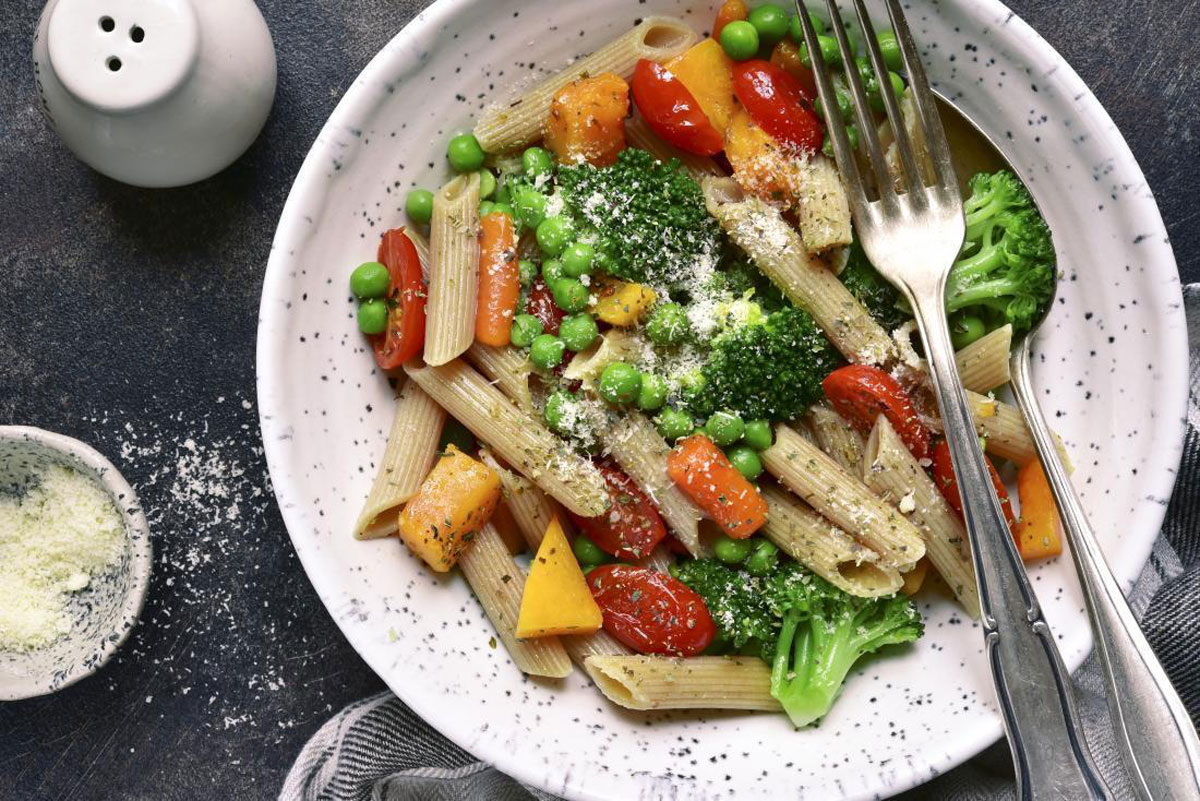We’re currently living in a completely unknown world. Never before (or at least, never in the lifetimes of the majority of us) have we been told to stay indoors for weeks and months on end, to wait out the demise of a potentially fatal virus.
The Covid-19 virus has caused hordes of the population to panic buy, and stock up on what they believe to be essential foods, to wait out the lockdown period. But are we actually buying ‘essential’ foods, or just what we believe to be essential? We spoke to Maria Stroh, a BHSc nutrition consultant, to find out the nutritional advice we should be adhering to right now.
We started by asking Maria about the immune system, as this is one of the most important parts of our body to help fend off both the coronavirus, and any other illnesses. She starts by saying, “we never want to boost the immune system, so never fall for those trying to sell you supplements claiming to do just that.”
“Boosting is probably the wrong word to use, as it can actually do more harm, by creating autoimmune conditions where our immune system starts attacking our healthy cells (which we definitely don’t want).
“Instead, you want to support the normal regulation of the immune system, with a diet rich in micronutrients from a variety of fruits and vegetables. Think ‘eating the rainbow’, the more vibrant, the better.”
She adds that we therefore shouldn’t be stockpiling tinned processed food – and definitely not toilet paper.
View this post on Instagram
As for other ways to support the immune system, Maria tells us, “vitamin A, C, D, E, zinc, iron and folic acid, amongst others, are vital. However, over supplementation of any single or multiple nutrients can have negative effects.”
“I would never recommend supplementation unless an individual had a known deficiency due to the inability of absorption, or other reasons.”
“Food should always come first, because if we haven’t got that right then there is no point in supplementation.”
“Protein is absolutely essential for our bodies to help make not only muscle, but it’s essential for enzymes, hormones, blood, cartilage, skin and our bones. Often when people are sick, we forget about protein and we reach for soups with heaps of veggies (which is great), but think about adding some lentils, chicken or even egg.”
You can even reap health benefits simply by adding herbs and spices to your meals too, “garlic, ginger, turmeric, cayenne pepper and cinnamon all have anti-inflammatory properties, so add these in as much as possible.”
View this post on Instagram
So what sort of meals should you be making at home exactly, to see out the quarantine in good health? Maria recommends, “a balanced meal with half a plate of non-starchy vegetables, one serve of carbohydrates (will depend on your daily activity and your body size), a decent size portion of protein and a small portion of fats, whether that’s olive oil in your dressing, or a serving of avocado. This will keep you full for longer.”
Meat-eaters get it pretty easy when it comes to getting the nutrients they need, as “animal sources of protein contain all 9 essential amino acids in one serving: think meat, fish, dairy and eggs.”
The veggies and vegans out there will struggle, as “plant-based sources don’t always contain all essential amino acids in one serve”, but this can be rectified with a “broad range of plant-based sources.”
Of course, just because you’re eating right, doesn’t necessarily mean your body will be at 100 percent health. Maria also tells us it’s important to stay active during this lockdown period.
“There are so many online programs right now and most of them you can do using just your bodyweight. If you can get outside, then do, either to go for a walk or a run”
“There is an abundance of evidence to prove exercise is not only good for us physically, but mentally too!”
“If yoga is your thing, do that. I often see that when an individual is active, they choose to eat healthy too, and when they stop they get stuck in this rut and start to reach for the not-so-great options. It’s a never-ending cycle.”
So, now you should be better armed to tackle the indefinite self-isolation period, with the realistic chance of coming out of it a healthier, happier you.
